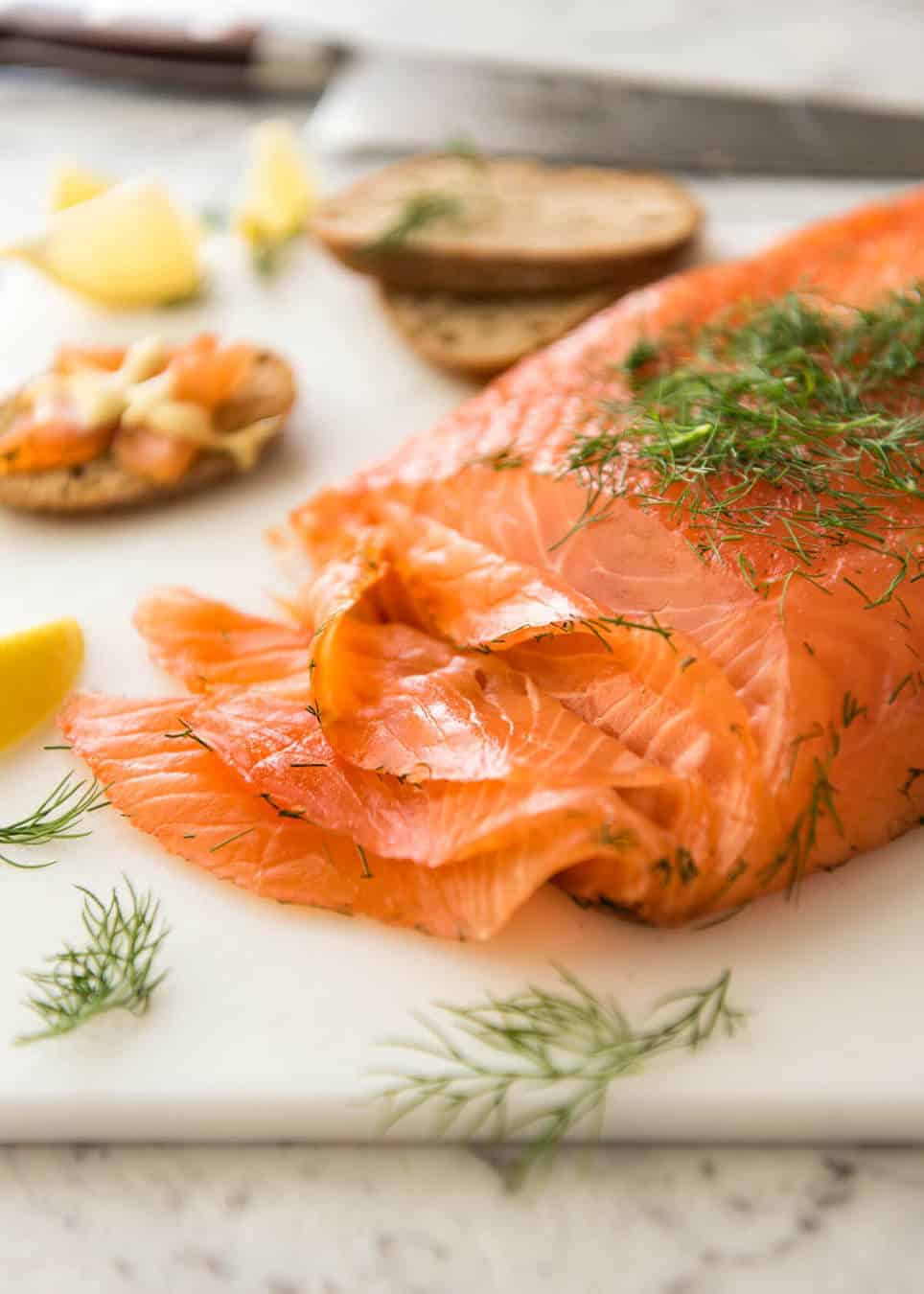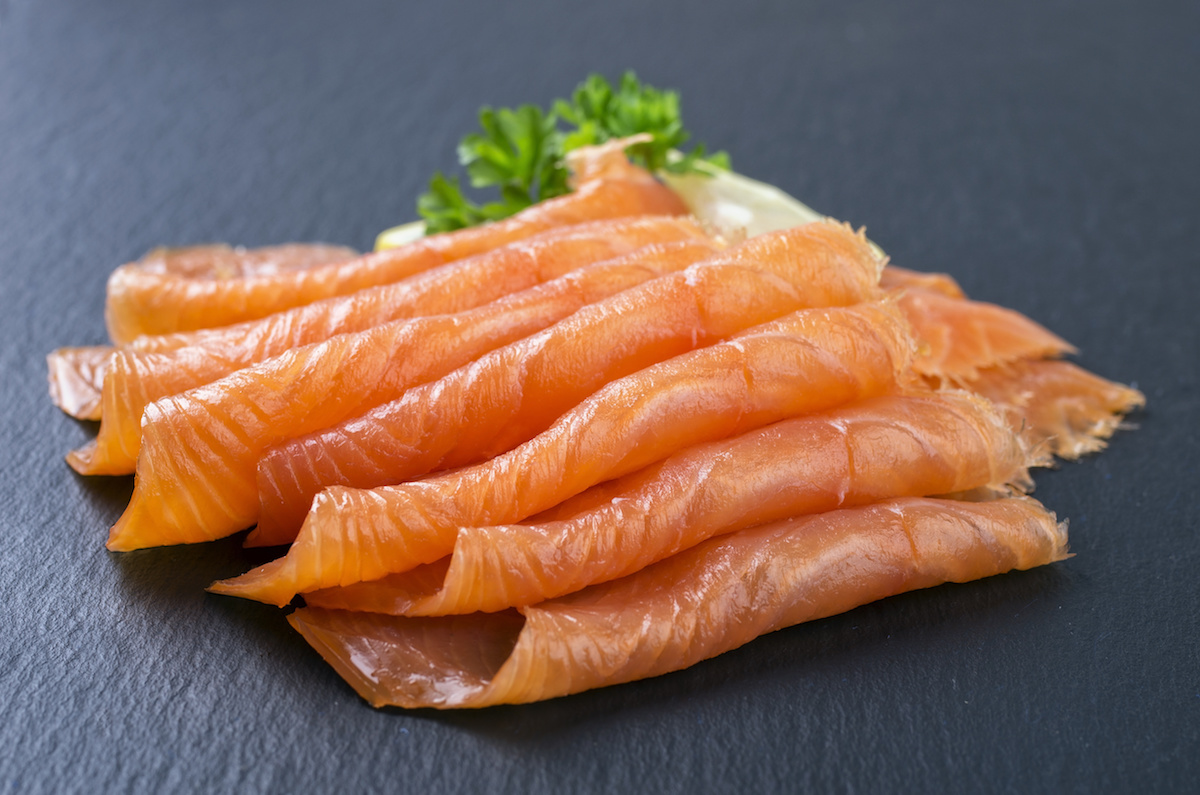Classic Jewish brunch food is more affordable, and surprisingly easy, when you make it at home.
Or for many American Jews and for many Americans in general, lox is the delicious topping for your Sunday morning bagel and schmear (generous portion of cream cheese).
Lox is always made from salmon and is very expensive. In this regard, it is different from many other iconic Jewish foods, such as gefilte fish and herring, which are made from ingredients that are easy to buy and cheap, an important consideration for historically poor Jewish communities.
Table of Contents
Smoked salmon vs. Smoked salmon
While lox may be delicious, the term is quite confusing: what we now call lox, derived from the German word for salmon (lachs), is in fact smoked salmon. True lox is put in brine in a salty solution, which cures the fish, but also leaves a strong and salty taste. Today, the lox is lightly salted and then smoked cold, providing the typical “Nova” smoked salmon flavor. The word lox is now used interchangeably with smoked salmon, and the most popular item sold on Sunday mornings at Zabar’s in New York City, over 2,500 pounds a week, is not really lox, but smoked salmon.
Unfortunately, lox has become an even more complicated problem with current fishing trends. As wild salmon becomes increasingly scarce, the use of salmon farming has increased dramatically. More than 80 percent of salmon sold in the United States comes from farms, posing health and sustainability issues, as documented in this 2003 New York Times article, “Farmon Salmon Looking Less Rosy.”
Diy Lox
However, it is now easy, though not yet cheap, to buy sustainable wild-caught salmon from specialty stores or from Trader Joe’s and Whole Foods. Although you will spend on fish, you can save money learning how to cure it yourself.
The easiest way to make homemade lox is to follow the Scandinavian form of Gravlax, which is salmon cured in a solution of salt and sugar. This process skips the smoking step, an unrealistic task for most home cooks.
Follow this recipe and in just a few days you can enjoy the delicious sausage that you prepared yourself. Start the fish on Thursday and at noon on Shabbat you will have the perfect masterpiece for your Shabbat table, or better yet, wait another day for the perfect Sunday brunch. This is also a popular dish to serve on a Yom Kippur fast.
Ingredients
1 cup kosher salt
1 1/2 – 2 pounds boneless salmon fillet skin on
1 cup of sugar
1/2 bunch of dill, stemless and leaves washed
Addresses
Rinse the salmon fillet and be sure to remove all of the pin bones. To do this, take a pair of forceps or small forceps and remove the small bones in the same direction that they are facing. There are bones more often in wild salmon than in farmed salmon.

Cut the salmon in half, to make two pieces of the same size.
Mix the salt and sugar in a bowl. On a plate or in a shallow dish, stack half of the mixture on top of each half of the salmon. It will look like there is an extra mix, but just apply it. The salmon will absorb the mixture during the curing process. Then place the dill on top. Sandwich the two pieces of fish and wrap them tightly in plastic wrap.
Place the fish in a gallon Ziploc bag and blow out all the air. Now place it in a shallow pan, like a Pyrex oven pan.
Refrigerate, with weights on top, which is crucial. Use another heavy plate, bottles of wine, anything to weigh the fish.
The lox will take 2-3 days to cure. At the end of each day, drain any liquid that has been removed from the salmon and turn the salmon over so that both sides are evenly weighted. You can start testing it after 2 days. When cured to desired taste, remove fish from plastic and rinse thoroughly.
To eat, cut into thin slices, leaving the skin behind. Eat with your favorite cream cheese and rolls, and enjoy.
The cured lox freezes very well. Simply wrap it tightly in plastic and put it in a freezer bag for storage.
Next time, you can change the flavor: make it Mexican with chili powder and limes; Greek with lemon and oregano; Israeli with zaatar … the possibilities are limitless!



